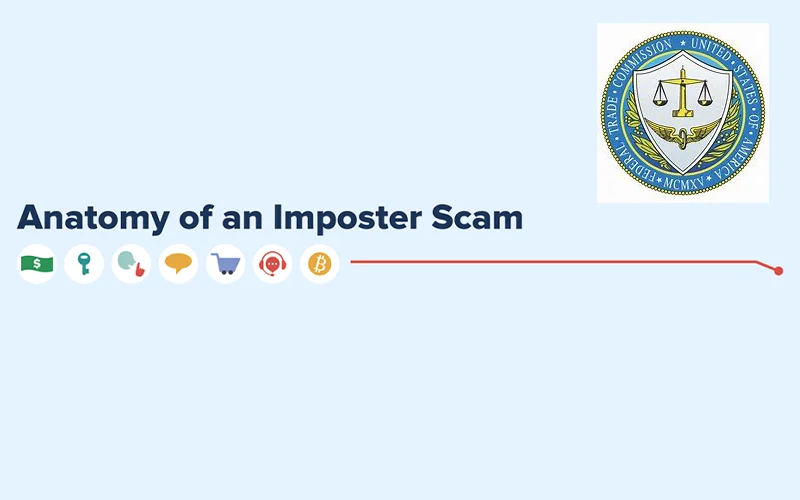From the Federal Trade Commission– By Amy Hebert—
As we continue our deep dive into scams by imposters, we’re taking a look at a new twist on tech support scams. Ever deal with a tech support scam? A warning pops up on your computer. It says your computer has a virus and gives you a number to call for help. You often end up paying hundreds of dollars to a scammer who pretends to deal with the fake virus. Now scammers are upping the stakes — instead of hundreds of dollars, people are unknowingly handing over tens or even hundreds of thousands of dollars to tech support scammers. Here’s how.
Tech scammers still use fake security pop-ups to get you to call a number. But instead of telling you there’s a virus, they now say someone hacked your bank, investment, or retirement account and is using it for fraud. To “help,” they transfer you to another scammer who pretends to be with a government agency (like the Federal Trade Commission or the FBI) or the fraud department at your bank. The scammer says the only way to protect your money is to transfer it to a new account. The problem is the scammer controls that new account and quickly cleans it out.
Other scammers take the same approach but tell you to “protect” your money by buying gift cards and sharing the numbers on the back, buying bitcoin and sharing the account information, or withdrawing cash or buying gold and dropping it off to someone in person.
Here’s what to know:
- Never call a number on a security pop-up warning. Pop-ups that tell you to call tech support are always from imposters.
- Never move or transfer your money to “protect it.” Only a scammer will tell you to do that.
- Never give someone a verification code to log in to your account. Scammers want it to get into your account.
- Call your real bank, broker, or investment advisor if you’re worried about scams from imposters. And use a number you know is real.
Learn more about tech support scams. And tell the FTC about tech support scams at ReportFraud.ftc.gov.
More online scam advice from the FTC
The FTC Consumer Advice blog series, “Anatomy of an Imposter Scam,” breaks down how to recognize, avoid, and report business and government imposter scams. Other posts in the series:
- Never move your money to “protect it.” That’s a scam
- What’s a verification code and why would someone ask me for it?
- Will your bank or investment fund stop a transfer to a scammer? Probably not
- Sure ways to spot a scammer
- Did you get a call or text about a suspicious purchase on Amazon? It’s a scam
- Did someone send you to a Bitcoin ATM? It’s a scam
Contact the Pinnacle CPA Advisory Group
If you need help with your taxes, or any type of professional accounting services, contact the experts at Pinnacle CPA Advisory Group. Call our Columbus offices at (614) 942-1990, send email to us at info@cpaagi.com, or just fill out the Contact form on this website, at cpaagi.com/contact.


